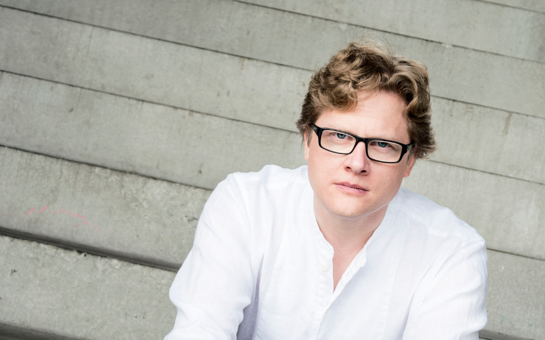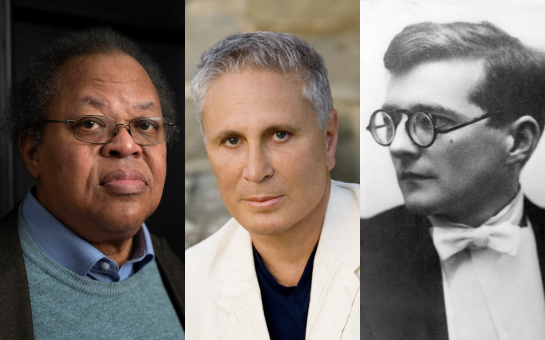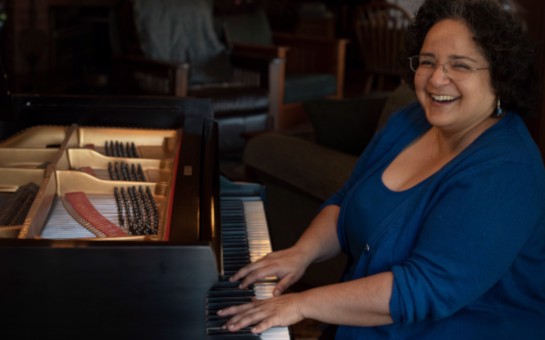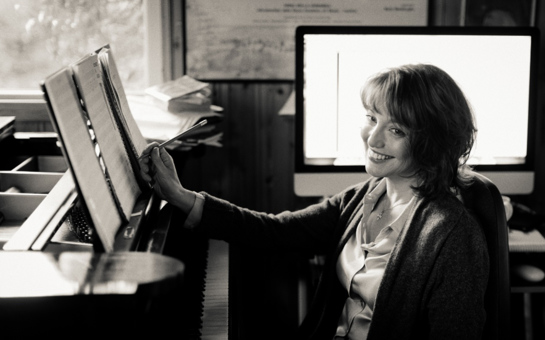Ring out false pride in place and blood,
The civic slander and the spite;
Ring in the love of truth and right,
Ring in the common love of good.
- Alfred, Lord Tennyson (1850)
On March 6, 2024, the Palm Beach Symphony and conductor Gerard Schwarz perform the world premiere of Portraits and Diversions, the newest composition from Aaron Jay Kernis. It is the latest of several magnificent orchestral scores produced by Kernis since the onset of seismic international changes in 2020.
As the world enters a new era, Kernis continues to produce music that reflects a wide range of complex human emotions and desires. The following works reflect our hope, grief, joy, hyperactivity, and stillness; they are rendered in crystalline definition and are the product of inspired collaborations with great artists.
Portraits and Diversions (2023)
Upbeat, optimistic and light-hearted, Portraits and Diversions echoes the tropes of Classical symphonies and divertimenti across four movements. The noble Palindromic Overture introduces energetic, bluesy motives, while the second movement Double Portrait (with frame) is inspired by great works of art by Picasso, Braque, and Hopper. A romantic Nocturne follows, and the piece concludes with a bustling Collage-Rondo. Fueled by buoyant energy and reckless bravado, it evokes a puckish carnival atmosphere, reminiscent in tone of the early period when both Picasso and Stravinsky were living in Paris. Portraits and Diversions was commissioned by Bonnie McElveen-Hunter to honor Leonard Lauder and Judy Glickman Lauder – whose art collection inspired the odd movements of the piece – and to celebrate the 40th anniversary of the Palm Beach Symphony.
Edensongs (2021)
The oratorio Edensongs addresses the most pressing of contemporary environmental and social crises by turning to the oldest of traditions. It emerges from ruminations on topics ranging from paradise to climate change, from kabbalah to the garden as a locus of value in Jewish, Islamic, and Renaissance traditions.
Set to a libretto by MacArthur Fellow Peter Cole, the oratorio synthesizes together many iconic texts: Book of Genesis with the Song of Songs, an apocalyptic meeting of poems by Paul Celan with the scene of the 2018 California wildfires, and passages from Rumi with original poetry by the librettist. Edensongs brings together two decorated artists working at the height of their powers—looking forward as they also look back.
Earth (2021)
Earth is a work about the climate crisis; the two movements are a story, and a song. The first, Seasons, is a story of a farmer and the land that he lives on, works and raises his family — a microcosm of our own lives on this ground we call home. This text is by poet, sustainable farmer and researcher Kai Hoffman-Krull, who lives and farms near Seattle, and is a colleague of Kernis’ at Yale University. The second movement, Farewell, is a song on an excerpt of Tintern Abbey (1798), a poem by William Wordsworth, who wrote passionately and powerfully about his love of nature.
“Writing the work began as a homage to Gustav Mahler’s late song cycle, Das Lied von Der Erde (The Song of the Earth),” notes Kernis. "The instrumentation of Earth particularly highlights instruments that Mahler himself featured prominently in this work — flute, oboe, and horn, along with extensive string solos. This work is additionally inspired by the rare artistry of tenor Nicholas Phan, for whom it was written.”
Elegy (for those we lost) (2020)
Elegy (to those we lost) was composed during the month of May 2020, when it was already clear that the toll of the pandemic was truly devastating. In this short work, listeners can find a space of solace to reflect, remember and mourn those we have lost — known or unknown to us – and allow us to find compassion for each other. Elegy began as a work for solo piano and was subsequently orchestrated for a number of different configurations, including chamber orchestra, strings, and violin with piano accompaniment.
Wild Sky (2023)
Published in 1850, Tennyson’s poem Ring out, wild bells speaks profoundly to our world at this time, echoing hopes for new beginnings. It is the inspiration for Wild Sky.
“By the time I located Tennyson’s words the piece had already developed much of its direction and flow,” writes Kernis, “but as I continued toward completion the underlying messages of the poem began to affect the music in unexpected ways. The shifting characteristics of the music - celebratory, light, energetic, hyperactive, reflective, noble - strongly contrast with the tone of the poem, which has its own seriousness of purpose and panorama of ideas."
Wild Sky is written for large orchestra, and in celebration of 100th anniversary of the Rochester Philharmonic. It is dedicated to Maestro Andreas Delfs and the musicians of the orchestra.
For more information, please contact your local Wise Music Promotion Team. See Contact Us.





